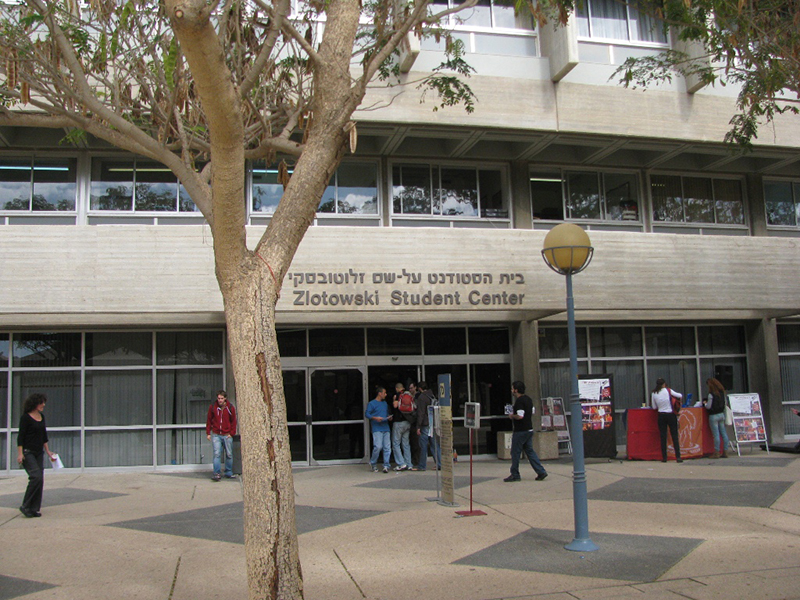Ben-Gurion University of the Negev (BGU) captured the bronze medal in Concordia University’s annual Engineering and Commerce Case Competition (ECCC), placing third out of a starting field of 13 teams.
In the final round on March 11, BGU was up against the University of Calgary, which came first, American University at Cairo, which came second, and Trinity College Dublin.
To reach the final, BGU finished first in its division in the round-robin tournament, besting the University of Alberta, the University of New Brunswick and the Amsterdam University of Applied Sciences in total points.
Over the course of three days, the teams, which were composed of an equal number of undergraduate students from engineering and commerce programs, tackled three realistic business dilemmas that required expertise from both disciplines. The first two cases lasted six hours each and the third lasted a gruelling 12 hours.
Each case concluded with a presentation before a jury of three industry experts, supported by a PowerPoint presentation and appropriate documentation.
The four finalists were given a problem relating to blockchain technology and cybersecurity that was posed by Paysafe Group Ltd., an online payments company headed by former Montrealer Joel Leonoff. Five representatives of the company served as judges.
READ: ISRAELI MBA STUDENTS UP AGAINST THE BEST AT CONCORDIA MEET
BGU won the prize for the most sustainable solution, coming up with a proposal for an “e-wallet,” which would enable people to carry just one credit card for all electronic transactions.
The ECCC, which has been held every year since 2013, aims to promote collaboration between two fields that have traditionally been separate. The student-run meet recognizes that the lines between the business and technical worlds are increasingly being blurred, yet university undergraduate programs are only starting to catch up with this reality.
The competition gives participants the chance to network with their peers from around the world, as well as to make connections with the ECCC’s corporate partners.
This was the fourth year that BGU entered the competition. Its participation was made possible with the support of the Canadian Associates of Ben-Gurion University, whose Montreal chapter raises funds to help cover the costs of the trip and takes much pride in “their” team.
Members hosted a welcome reception for the students at the home of Gail Palevsky and Simon Mendelson, took them on outings and closely followed the competition over five days.
Canadian Associates of Ben-Gurion University CEO Mark Mendelson is delighted with the results. But more important than a medal finish, he said, is showcasing “a world-class Israeli institution of education and research,” and providing the students with an experience that enhances their education and careers.

The team was coached by Prof. Amir Shapiro, director of the robotics laboratory at BGU’s mechanical engineering department. He said that, while female representation remains low in his department – about 12 per cent – in industrial engineering, about half of the students at BGU are women (3/4 of BGU’s team was female).
The team was composed of Dana Rubin, Noam Levin, Avital Hayat and Ehud Cohen.
Rubin, 26, is a fourth-year industrial engineering and management student who is currently working at Intel as a system analyst.
Noam Levin, 26, is a third-year business management, sociology and anthropology student who works at Be’er Sheva’s startup centre for community development and will soon be joining L-net Knowledge Technologies, which develops educational software.
Avital Hayat, 24, is also in her third year, pursuing a degree in business management and finance. She manages the Be’er Sheva branch of One Hour Translation, an online translation service.
The sole male on the team was Ehud Cohen, 24, a third-year mechanical engineering student who’s working in Shapiro’s lab.
They practised for six months leading up to the ECCC. Shapiro coached BGU’s previous teams and knew how rigorous the competition would be.
The four team members represent the best of a larger group of students who took part in a week-long class, in which they had to come up with a design for a new piece of technology and a plan to commercialize it, with outside experts serving as judges.
Shapiro sees much value in “bridging the gap between the marketing and financial side and the engineering side.” Two previous BGU competitors in the ECCC have since started a robotics company in Be’er Sheva, putting their respective management and engineering backgrounds to practical use, he noted.








